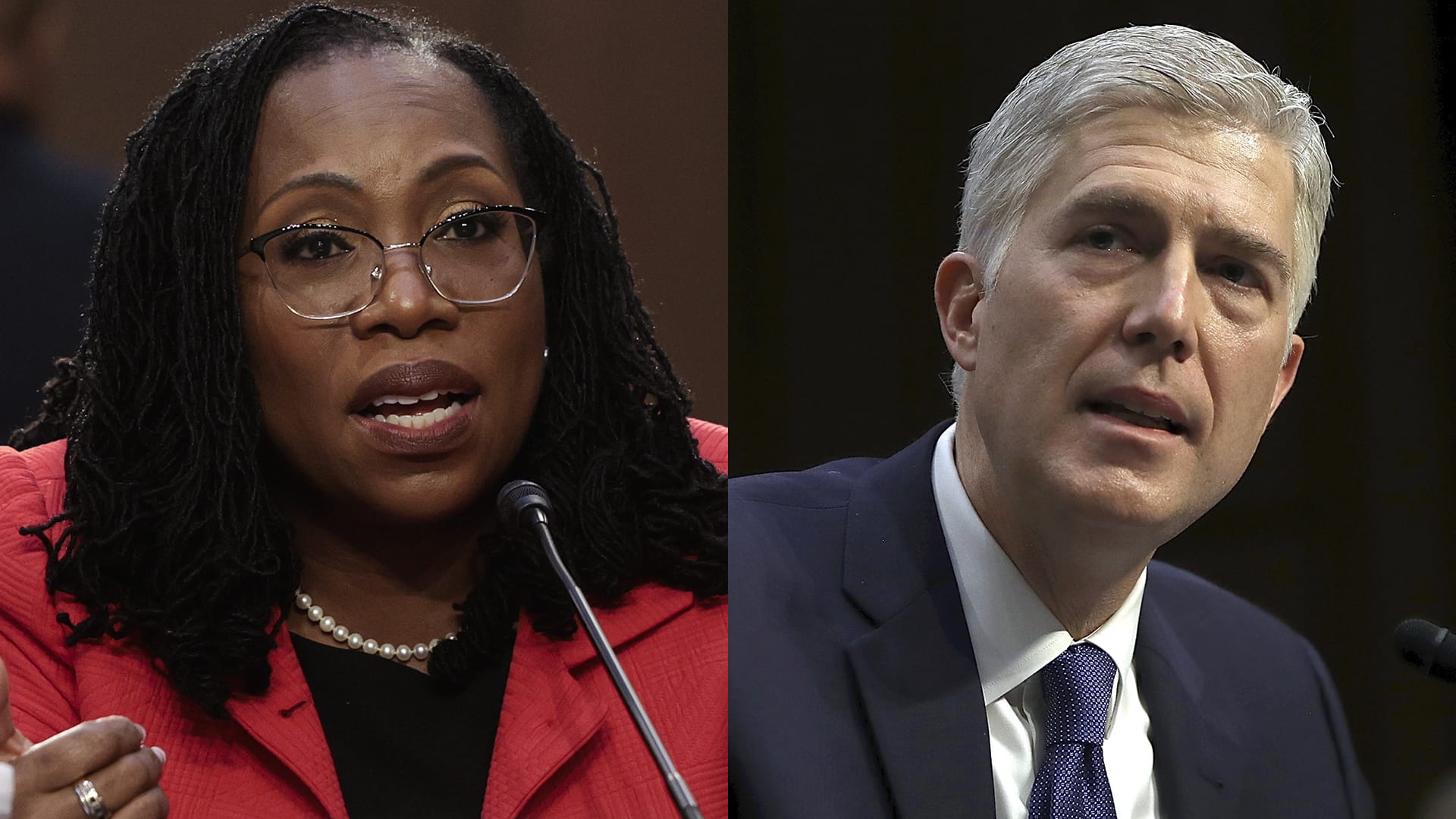OPINION: This article may contain commentary which reflects the author's opinion.
Supreme Court Justice Ketanji Brown Jackson got into a heated debate with fellow Justice Neil Gorsuch during her first oral argument appearance.
It was Monday when she made her debut on the court in the case of Sackett v. Environmental Protection Agency, the court’s first case of the new term.
The case asks if the federal government has the authority to protect certain wetlands for environmental protection, Politico reported.
It took a new justice less than 8 minutes to get involved and have her voice heard.
Justice Gorsuch argued that some land owners could be fined for unknowingly building on protected lands.
“So if the federal government doesn’t know, how is a person subject to criminal time in federal prison supposed to know?” he said.
Justice Brown Jackson attempted to interrupt Justice Gorsuch but was unsuccessful, but did speak after him.
“Is there a process by which a homeowner can ask?” she said.
Deputy US Solicitor General Brian Fletcher said that they could and that the Army Corp of Engineers will do a jurisdictional determination at no cost to the land owner.
“So you’re not really facing criminal liability without the opportunity to get an assessment from the government regarding your particular circumstances?” she said.
Damien Schiff, an attorney for the Sacketts, said that there was an expense in hiring environmental consultants and that it was a hassle to check to see if the land they are building on is protected.
“I thought they went into it knowing this might be a wetland,” she said, again interrupting.
The attorney said that an assessment was done by a previous owner that determined the land was a wetland but that his clients did not know it.
“Shouldn’t they have gathered information about the property prior to purchasing it?” she said.
“You keep talking about notice and fair notice and property owners not being able to tell or know about this issue,” the Justice said. “I’m just trying to clarify with respect to the Sacketts — there seems to have been a prior determination that the land was wetland before they bought it. And whether or not they knew, they could have known, I presume, so why is this unfair in this situation with respect to the government now asserting that authority?”
He said that the prior assessment had expired as he centered his arguments on federalism and state’s rights.
“Why is it that your conception of this does not relate in any way to Congress’ primary objective?” she said. “Do you dispute that the primary objective stated in the statute…is that Congress cared about making sure that the chemical, physical and biological integrity of the nation’s waters was protected?”
While directed at Schiff, her point summed up the general critique of the right wing justices’ handling of agency cases: ignoring the spirit of the law in favor of parsing the language of the statutes to conclude that Congress wasn’t specific enough in the text. The nondelegation and major questions theories, increasingly favored in the conservative legal sphere to weaken agencies and their ability to regulate, rest on such readings of laws that disregard Congress’ attempts to empower agencies if they don’t meet some amorphous standard of specificity.
Some of Jackson’s conservative peers seemed to be taking that route again, including Gorsuch, who suggested that EPA’s methods to determine which wetlands are protected are opaque and arbitrary. If they can muster enough votes within the six-person conservative supermajority, they’re likely to narrow the definition of which wetlands rate federal protection, which EPA warns will leave them — and the waterways they connect to — vulnerable to pollution and contamination.
The Court’s new session began on Monday and it will tackle many cases, including Section 230 protections.
